
|
|
|
Faculty Members
 |
|
Prof. Zhitang Song, a supervisor for Ph.D candidates,is thedirector of nanotechnology lab, deputy director of state key Laboratory of functional materials for informatics. His researches are focused on phase-change materials and storage and IC CMP Slurry. Prof. Song invents and develops the theory of detector new phase change materials; achieve many new materials with independent intellectual property rights including memory materials SiSbTe?SiSb. Until now, he has applied for 109 national patents, 26 of which have been authorized, 84 are published and has published 177 papers including 8 papers in Appl.Phys.Lett which are sited by more than 500 times by nature, nano letters and other journals. He is an outstanding teacher acknowledged by the Chinese Academy of Sciences and a brilliant leading scientist acknowledged by the municipal government of Shanghai. He has undertaken or is undertaking many national or provincial research projects: integrated circuit national major projects, National Program on Key Basic Research Project (973), National High-tech R&D Program of China (863), National Natural Science Foundation of China, etc. He has received the National Science and Technology Progress Award (the first prize), Shanghai Science and Technology Progress Award (the first prize), the outstanding technology achievement award, special government allowance and other honors.
|
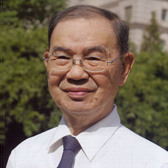 |
|
Prof. Yuansen Xu, a supervisor for Ph.D candidates, academician Chinese academy of Engineering. Prof. Xu developed a manufacture method of nodular cast iron, a material with steel strength but lower process cost. This method was widely accepted by many machinery and shipbuilding companies. There are two huge complex iron ores in China. One is in Baotou, containing fluorspar and rare-earth minerals, and another is in Panzhihua, containing Ti and V elements. These minerals in these complex ores couldn’t be separated cost effectively by means of ore dressing, and no successful records about smelting these complex ores in blast furnaces in the metallurgical history at that time. Over several years of hard work, in the 1950s, his group provided a solid scientific foundation for design and smelting schemes of two ores, and later two big Chinese steel companies were constructed and have been smoothly working up to now.
Since 1965, Prof. Xu has shifted from metallurgy to the development of high-speed integrated circuits, including memories, logics, microprocessors, linear circuits and gate array. Many of these integrated circuit designs have been transferred to semiconductor plants and generated high economic benefits. Prof. Xu won many national science prizes by the state, the Chinese Academy of Sciences and the Shanghai Municipal Government.
|
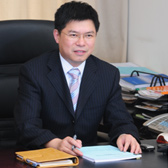 |
|
Prof. Jianlong Zhao, a supervisor for Ph.D candidates, vice president of Shanghai Institute of Microsystem and Information Technology, Chinese Academy of Sciences. His researches are focused on the BioMEMS and Biosensors. Worked as the chief scientist of the key project of CAS knowledge Innovation Program and the deputy director of the Shanghai Biochip National Engineering Research Center, and have taken charge of the Major projects of MOST, CAS and STCSM. He has applied 50 patents and published more than 100 papers. He also has developed gene diagnosis chips for main infectious diseases such as Hepatitis B, Hepatitis C and Tuberculosis, and two products were approved by SFDA.
|
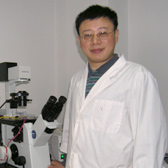 |
|
Prof. Qinghui Jin, a supervisor for Ph.D candidates, received the PhD degree in Microelectronics & Solid electronics from Shanghai Institute of Microsystem and Information Technology, Chinese Academic of Science, in 2002. His research interest is Bio-Microelectromechanical System (Bio-MEMS) and Lab-on-a-chip. Now his work focused on microfluidic system for DNA, urine protein and serum protein separation and detection, cell culture microsystem, MEMS fabrication, micro/nano-fluidic simulation and analysis, microchip analysis instrument design and manufacture.
|
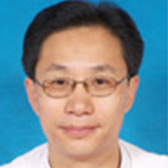 |
|
Professor BaoJia Xia, a supervisor for Ph.D candidates, is the fellow member of the Standardization Committee for Alkaline Secondary Batteries of China, the fellow member of the Electrochemistry Society of China, and the council member of the Chemical and Physical Power Society of China. He is the expert for reviewing national scientific and technical prizes, and also the guest professor in both the National Engineering Research Center for Nanotechnology of China and the Chemical Power Institute of Suzhou City. He obtained the second and third prizes offered by the former Space Ministry of China. He has published over 100 papers, and has applied for over 30 national patents. He is an outstanding teacher acknowledged by the Chinese Academy of Sciences and a brilliant leading scientist acknowledged by the municipal government of Shanghai. He has undertaken or is undertaking over ten national or provincial research projects.
|
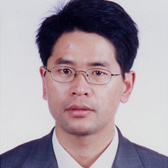 |
|
Prof. Jian-Gong Cheng, a supervisor for Ph.D candidates, received the M.S. degree in condensed-matter physics from Shandong University, Jinan, China, in 1997, and the Ph.D. degree in microelectronics and solid-state electronics from Shanghai Institute of Technical Physics, Chinese Academy of Sciences, Shanghai, China, in 2000. He was a Senior Research Fellow with the Corporate Technology of Siemens AG, Munich, Germany, from 2001 to 2003. He was with the Material Research Laboratory of Pennsylvania State University as a Postdoctoral Fellow from 2003 to 2005. Since July 2005, he has been a Professor with the Shanghai Institute of Microsystem and Information Technology, Chinese Academy Sciences, Shanghai, China. His research covers ferroelectric materials and their applications as pyroelectrics in infrared detectors, dielectrics in capacitors, and as piezoelectric transducers for biosensors. He is pursuing his research interests in developing novel chemical sensors with fluorescent polymers..
|
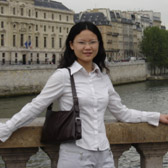 |
|
Prof. Weili Liu, female, a supervisor for Ph.D candidates, mainly engaged in SOI new materials and devices, nano-electronic materials and device research. In recent years, more than 100 papers are published on the national and foreign journal, such as "Applied Letters", etc. More than sixty papers are indexed on SCI, She has applied for twenty invention patents, seven of which have been authorized. Now she is charge of 863 projects, the National Natural Science Foundation of China and Shanghai major research projects. And she received the National Science and Technology Progress Award (the first prize),Shanghai Science and Technology Progress Award(the first prize), the Outstanding technology achievement award and other honors.
|
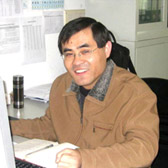 |
|
Prof. Bo Liu, male, a supervisor for Ph.D candidates. From 2000 to 2003 he did light storage technology research under the guide of Gan Fuxi academician at Shanghai-ray machines institute, Chinese Academy of Sciences. And he is granted engineering doctorate. Main research directions are research and development of phase-change memory key material and chip technology. As a leader, he was in charge of nine research projects, such as National 863 Program goal-oriented projects. As the backbone of projects, he engages in 18 science and research projects, including nano major scientific research plan of national ministry of science and technology. He has published 102 papers, applied 32 patents (5 patents have been authorized) He engaged in the writing of "China application". He won the Chinese Academy of Sciences Lu Jiaxi award for young talents, the Shanghai youth Science and Technology Venus award and other honors and awards.
|
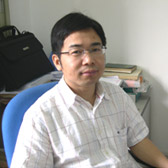 |
|
Dr. Liangcai Wu, male, a supervisor for M. Sc. Candidates, received the PhD degree in physics department of Nanjing University. His main research fields are electrical properties in semiconductor materials and structures, new type storage medium, micro/nano process and micro/nano-devices. He has published over 40 papers in many good science journals such as Applied Physics Letters, J. Vacuum Science and Technology B, Thin Solid Films, etc. He has applied 9 national patents, among which 2 patents have been approved. He is taking part in several projects, including National Program on Key Basic Research Project (973), National High-tech R&D Program of China (863), National Natural Science Foundation of China, etc. He got Wang Kuanchen postdoctoral work incentive fund, the Chinese Postdoctoral Fund, six provinces and one municipality in East China Year of Physics Youth Outstanding Paper Award, Motorola scholarships. He is also a reviewer of Appl. Phys. Lett., Nanotechnology, Chinese Physics Letters and other magazine
|
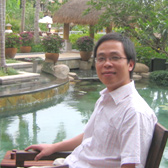 |
|
Dr. Gang Li, a supervisor for master candidates, received the B.S. degree in Biophysics from the Department of Physics at Nankai University in 1992. From August 1992 to August 1990, he was with Hubei Medical University, ?rst as an Assistant and later as an Instructor. He received the M.S. degree in Biophysics from the Department of Biology at Tsinghua University in 2003. After having received the M.S., he has been a faculty member of Shanghai Institute of Microsystem and Information Technology, Chinese Academy of Sciences. His research interests include technologies and applications of bioMEMS and microfluidics. He has published more than 40 papers, and applied more than 20 patents.
|
 |
|
Dr. Qingguo He, a supervisor for master candidates, received the M.S. degree and the Ph.D. degree in Physical chemistry from the Institute of Chemistry Chinese Academy of Sciences in 2000 and 2003 respectively. He has been in Department of Chemistry of Nagoya University in Japan since 2003 to 2004 as a Postdoctoral Fellow. Since July 2006, he has been an associate professor with the Shanghai Institute of Microsystem and Information Technology, Chinese Academy Sciences, Shanghai, China. His research interests are in design, synthesis, and study of organic-based electronic, sensory materials.
|
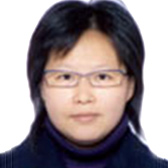 |
|
Dr. Yu-Wan Lou, a supervisor for M. Sc. candidates, has been focusing her research interests on Ni-MH, Ni-Cd and lithium-ion batteries since 1993. She is very proficient in understanding positive and negative active material structures and their electrochemical performance. She once took part in over 10 national or provincial research projects. She has published over 20 papers, and has applied 10 national patents, among which 4 patents have been approved.
|
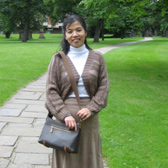 |
|
Dr. Hongju Mao, a supervisor for M. Sc. Candidates,received his M.S. degree in Genetics from Fudan University, and Ph.D in bio-sensor from Shanghai Institute of Microsystem and Information Technology, CAS. She worked on studying proteins that act as ion channels in heath and diseased conditions in the Department of Biomedical science, University of Leeds, UK as a visiting fellow from March 2005 to June 2006. Her current research interests are in the applied research of nanotechnology and bio-sensor in the early diagnosis of major diseases. She is the recipient of the Third Award for Science and Technology Progress (2005). She has Co-author of 3 books and over 30 technical publications.
|
 |
|
Dr. Jia Chunping,a supervisor for M. Sc. Candidates, was born in Feb. 1973 in Shandong Province. She graduated from Shandong Normal University in 1996, from Institute of Shanghai Plant Physiology and Ecology, Chinese Academy of Sciences in July 1999 and from Institute of Medical Genetics of Shanghai Children's Hospital, Shanghai Jiaotong University in July 2002, with bachelor’s degree, master’s degree and doctor’s degree respectively. She has been working as an associate professor engaging in the research on the application of nanometer biosensor and biochip in tumor diagnose and detection at Nanometer Technology Research Office, the Third Office of The SIMIT, CAS, ever since 2002.
|
 |
|
Dr. Xinhui Lou, a supervisor for M. Sc. Candidates,obtained her B.S. and M.S. with Distinction from Beijing University of Technology. In 2006 she received her Ph.D. in Chemistry from the North Carolina State University, Raleigh, USA. Prior to joining Shanghai Institute of Microsystem and Information Technology, Chinese Academy of Sciences, in 2008, Dr. Lou did two-year postdoctoral work under the direction of Prof. Alan J. Heeger (recipient of 2000 Nobel Prize in Chemistry), at the University of California, Santa Barbara. Her current research interests are in analytical biotechnology, especially in high throughput screening of functional molecules, directed evolution and biosensors. She is the recipient of Shanghai Pujiang Program (2009), the National Natural Science Foundation (2010), and the American Institute of Chemists outstanding Graduate Student Award (2005). She has published more than 40 referred international journal and conference papers, including those in top research journals such as Proceedings of the National Academy of Sciences (IF 9.6), Agewandte Chemie International Edition (IF 10.9), Journal of the American Chemical Society (IF 8.0), Analytical Chemistry (IF 5.8), and so on. Email: xinhuilou@mail.sim.ac.cn. |
|
|
|
|
 © 中国科学院上海微系统与信息技术研究所版权所有 沪ICP备05005483号
Add:300 Fenglin Road Shanghai,200032 P.R China Tel: 86-21-54924059 Fax:86-21-54924060
|

